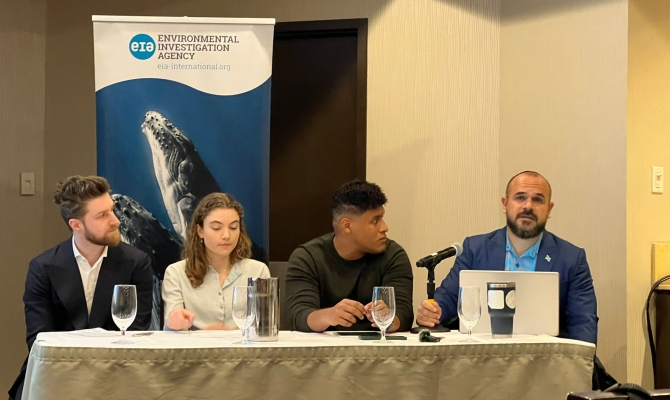Fiji contributes a fraction of one percent of the global macroplastic leakages from abandoned, lost, discarded fishing gear (ALDFG) but bears a disproportionate burden on its devastating impact on marine life and ecosystems.
Studies show that between 600,000 and 800,000 metric tonnes of ALDFG or ghost gear enter the oceans on an annual basis, making up 70 percent of all macro-plastics in the ocean by weight.
“Fishing gear is particularly problematic, as it often becomes waste on-site in sensitive ecosystems such as coral reefs, with high health and environmental risks, despite its lower production volume. Although fishing gear accounts for a small percentage of the types of marine plastics found in Fiji, the impacts are disproportionate as we are very dependent on the fisheries and tourism sector”, said Andrew Paris, advisor to the Fiji delegation at INC-4.
Paris made the point when he spoke during a side event on the margins of the upcoming fourth session of the Intergovernmental Negotiating Committee (INC-4) to develop an international legally binding instrument on plastic pollution, including in the marine environment, in Ottawa, Canada.
A breakfast briefing, ‘The “Untangled: The Plastics Treaty’s Critical Role in Tackling Fishing Gear-Vol. 3”, was held on Sunday, 21 April. It explored the need for full lifecycle governance of fishing and aquaculture gear, the current limitations of the zero draft text on plastics and how to inform the work of negotiators at INC-4. It was hosted by the Environmental Investigation Agency (EIA), Agency OceanCare, SPREP and MarViva.
Fiji is home to over 10,000 square kilometres of coral reefs which ranks among the top five in the world. The majority of Fiji’s 800 fish species are found on coral reefs.
“Coral reef ecosystems not only sustain our coastal communities but they are also revered culturally and their significance transcends the depths of the ocean. I saw firsthand the impact of ghost fishing gear during the Fiji-wide science expedition, it was disheartening to see reefs smothered with abandoned, lost, discarded fishing gear,” Paris said.
The zero draft under negotiations currently only has provisions to address downstream measures on the waste management of fishing gear. Fiji, along with other Pacific Small Island Developing States (PSIDS) is calling for an overarching obligation for parties to take effective measures across the full lifecycle of fishing gear including design, reuse, recyclability and disposal.
“Although there are current management practices and regimes such as the International Convention for the Protection of Pollution from vessels (MARPOL), and other regional and international instruments, no single instrument or body has adopted a comprehensive strategy which provides for interventions across the full fishing gear lifecycle that can effectively address the magnitude of the problem,” Paris said.
“We need to ensure there is a good degree of complementarity within these instruments and we are consulting with the right people domestically and regionally, especially those involved in the fishing industry” he added.
The fourth Intergovernmental Negotiating Committee to develop an international legally binding instrument on plastic pollution, including in the marine environment is taking place in Ottawa, Canada, from 23-29 April 2024
The Pacific Islands are represented by the Cook Islands, Federated States of Micronesia, Fiji, Kiribati, Marshall Islands, Nauru, Niue, Palau, Papua New Guinea, Samoa, Solomon Islands, Tonga, Tuvalu and Vanuatu through the support of the Government of Australia and the United Nations.














